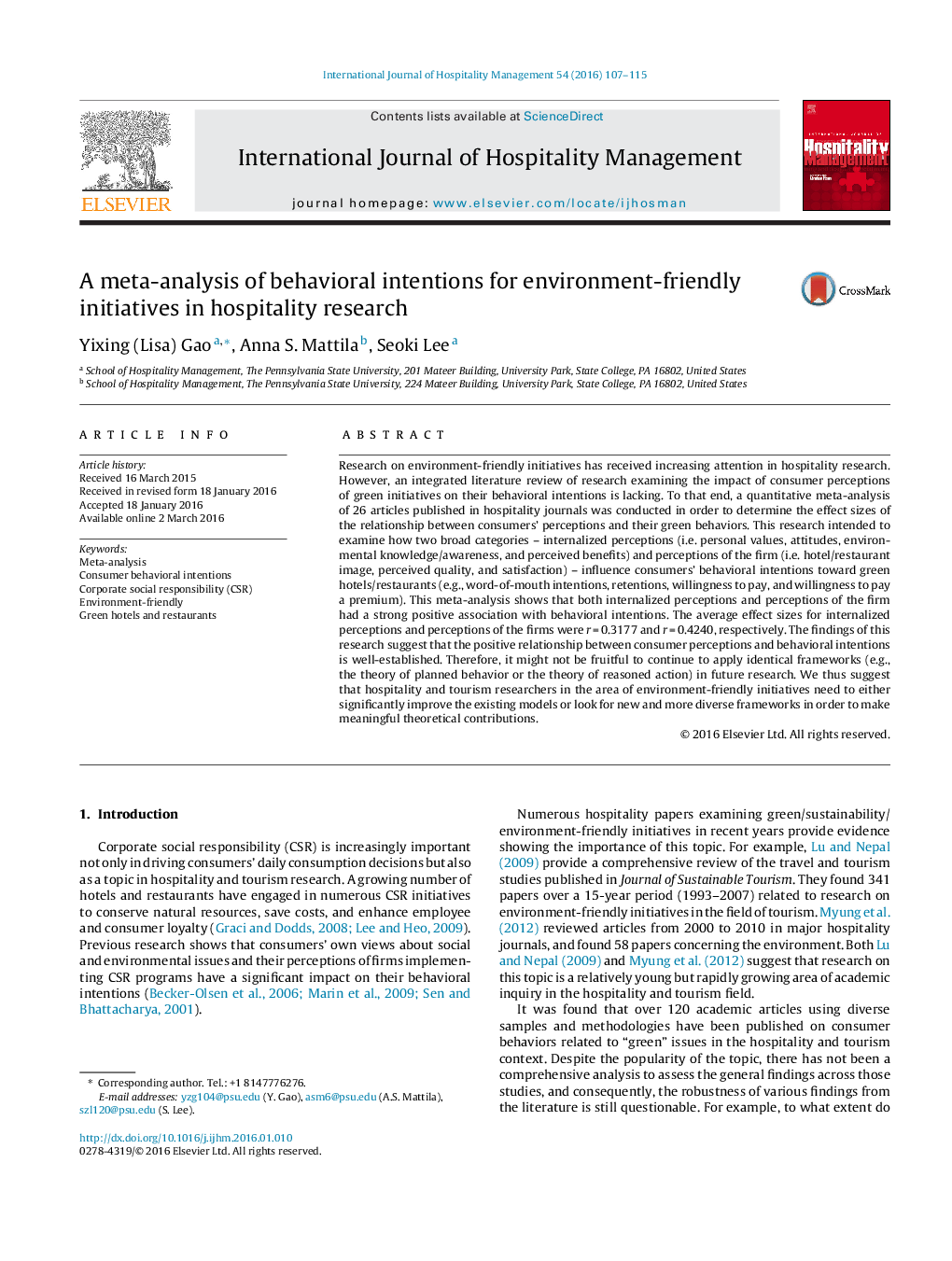| Article ID | Journal | Published Year | Pages | File Type |
|---|---|---|---|---|
| 1009159 | International Journal of Hospitality Management | 2016 | 9 Pages |
Research on environment-friendly initiatives has received increasing attention in hospitality research. However, an integrated literature review of research examining the impact of consumer perceptions of green initiatives on their behavioral intentions is lacking. To that end, a quantitative meta-analysis of 26 articles published in hospitality journals was conducted in order to determine the effect sizes of the relationship between consumers’ perceptions and their green behaviors. This research intended to examine how two broad categories – internalized perceptions (i.e. personal values, attitudes, environmental knowledge/awareness, and perceived benefits) and perceptions of the firm (i.e. hotel/restaurant image, perceived quality, and satisfaction) – influence consumers’ behavioral intentions toward green hotels/restaurants (e.g., word-of-mouth intentions, retentions, willingness to pay, and willingness to pay a premium). This meta-analysis shows that both internalized perceptions and perceptions of the firm had a strong positive association with behavioral intentions. The average effect sizes for internalized perceptions and perceptions of the firms were r = 0.3177 and r = 0.4240, respectively. The findings of this research suggest that the positive relationship between consumer perceptions and behavioral intentions is well-established. Therefore, it might not be fruitful to continue to apply identical frameworks (e.g., the theory of planned behavior or the theory of reasoned action) in future research. We thus suggest that hospitality and tourism researchers in the area of environment-friendly initiatives need to either significantly improve the existing models or look for new and more diverse frameworks in order to make meaningful theoretical contributions.
